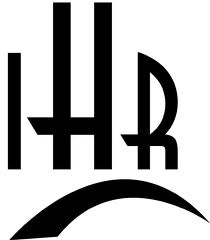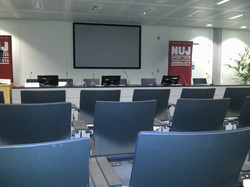So last week was a busy week for all of us on the journals module.
First we had a visit to Wiley Blackwell where we had a workshop on society journals. We learnt about how societies choose publishers to take over their journal publishing and the process of bidding for a journal. We learnt about how to put a bid together, some of the key things to take into account and how to make good on the things you promise. There were a lot of things I hadn't thought about before like securing jobs, trying to make the transition as smooth as possible and the challenges that complacency and habit pose when trying to propose changes. It was also interesting to hear that a lot of problems come from the fact that decisions to change publishers are often made high up in the hierarchy and that the people who are actually involved in the day to day running of a journal are often not given much or any input in the decision even though it is them that will have to deal directly with the changes.
It was a really interesting session where we heard from everyone involved including editorial, marketing, finance and the often forgotten production. All this was in preparation for our second assignment where we have to write a specification from the point of view of the society and present a bid as a publisher. It sounded scary when I first heard about it but now I feel a lot more ready for it.
The other big event this week was the deadline for assignment one which was a 2000 word article on an issue in journals publishing. I chose to do mine on peer review and particularly the role private peer review companies like Rubriq could play in the system. While these companies have good intentions, I argue that they do not solve any of the problems in traditional peer review, such as issues around bias and quality, and that they may in fact add new problems. It was particularly interesting reading around the debate over whether paying reviewers is a good idea or not. On the one hand it's a nice gesture that acknowledges the work put in by the reviewers but on the other hand many of them are reviewing not for profit but through a sense of duty to the academic community and to further their own careers in which case formal recognition they can put on their CV and use in funding applications would be better than cash. I didn't know there was so much debate around peer review and I really enjoyed learning more about the debates in this area and the alternatives being offered.
So while everyone else on our course is getting excited about children's books and digital breakthroughs I am spending my time learning about peer review and journal bids and really enjoying it.
First we had a visit to Wiley Blackwell where we had a workshop on society journals. We learnt about how societies choose publishers to take over their journal publishing and the process of bidding for a journal. We learnt about how to put a bid together, some of the key things to take into account and how to make good on the things you promise. There were a lot of things I hadn't thought about before like securing jobs, trying to make the transition as smooth as possible and the challenges that complacency and habit pose when trying to propose changes. It was also interesting to hear that a lot of problems come from the fact that decisions to change publishers are often made high up in the hierarchy and that the people who are actually involved in the day to day running of a journal are often not given much or any input in the decision even though it is them that will have to deal directly with the changes.
It was a really interesting session where we heard from everyone involved including editorial, marketing, finance and the often forgotten production. All this was in preparation for our second assignment where we have to write a specification from the point of view of the society and present a bid as a publisher. It sounded scary when I first heard about it but now I feel a lot more ready for it.
The other big event this week was the deadline for assignment one which was a 2000 word article on an issue in journals publishing. I chose to do mine on peer review and particularly the role private peer review companies like Rubriq could play in the system. While these companies have good intentions, I argue that they do not solve any of the problems in traditional peer review, such as issues around bias and quality, and that they may in fact add new problems. It was particularly interesting reading around the debate over whether paying reviewers is a good idea or not. On the one hand it's a nice gesture that acknowledges the work put in by the reviewers but on the other hand many of them are reviewing not for profit but through a sense of duty to the academic community and to further their own careers in which case formal recognition they can put on their CV and use in funding applications would be better than cash. I didn't know there was so much debate around peer review and I really enjoyed learning more about the debates in this area and the alternatives being offered.
So while everyone else on our course is getting excited about children's books and digital breakthroughs I am spending my time learning about peer review and journal bids and really enjoying it.


 RSS Feed
RSS Feed